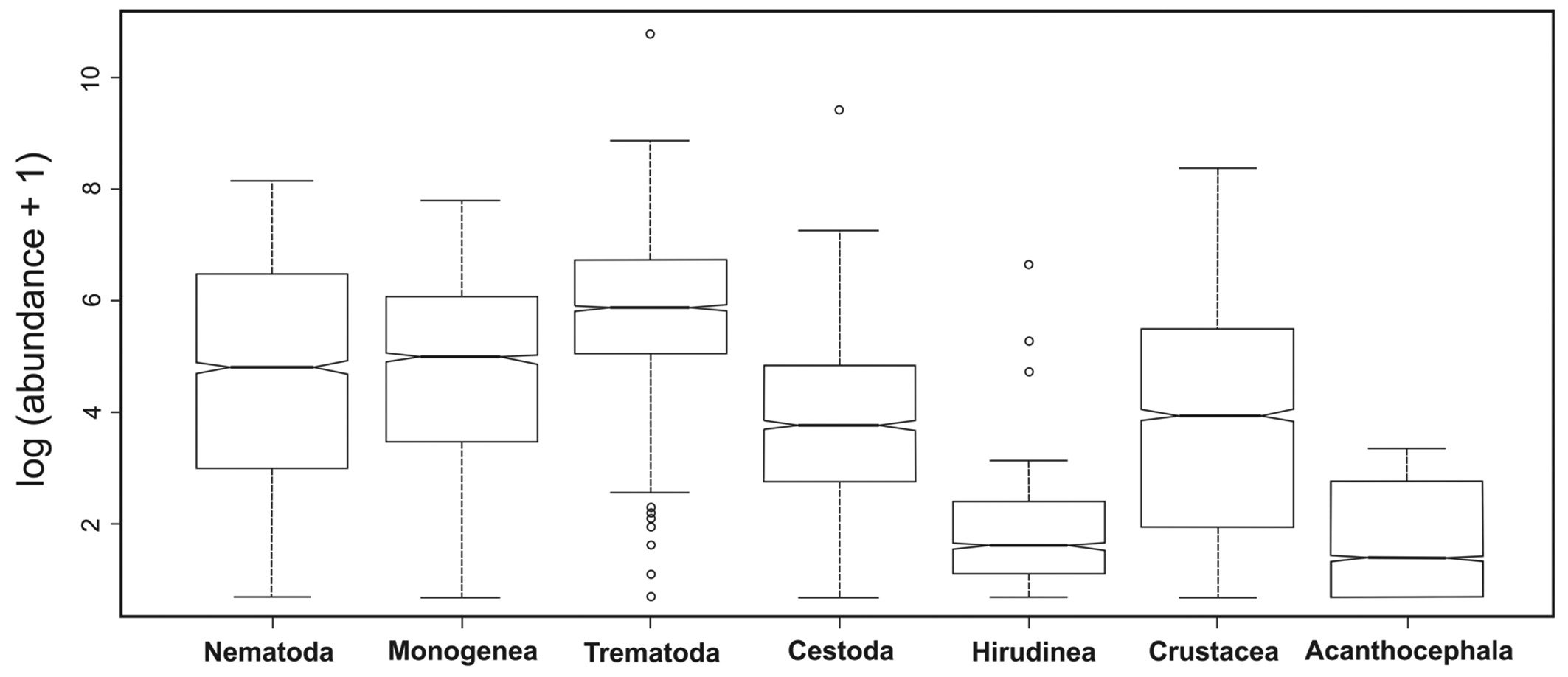Abstract
The variability in parasite abundance has an ecological basis; however, from an epidemiological point of view, the contribution of factors inherent to the host to the variability in parasite abundance remains an open question. A database consisting of 3,746 specimens of 73 fish species was used to verify the relation between the distribution of parasite abundance in fishes and a set of biotic factors inherent to the hosts. Classical and mixed Poisson regression models were constructed. Prevalence ratios (PR) and their respective 95% confidence intervals were estimated. The parasite abundance was significantly higher in female hosts, nonschooling species, species from benthopelagic and pelagic habitats, and fishes with greater body length. Overall, these results suggest that the variability in the abundance of infection is an attribute of the parasite species. Although the results are biologically plausible, important gaps may still exist and should be explored to better understand the variations in parasite abundance, which has great relevance in epidemiological studies. We reinforce the importance of choosing the statistical model most appropriate for the nature of the data to avoid spurious results, especially when the autocorrelation in the data is not taken into account.
Keywords:
Epidemiology; parasite ecology; multivariate regression analysis; mixed model; fish parasite ecology

 Thumbnail
Thumbnail
